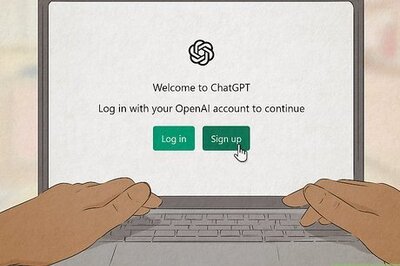
views
(Reuters) – The facial recognition startup Clearview AI agreed to restrictions on how businesses can use its database of billions of facial images, to resolve a lawsuit it accusing it of collecting people's photos without permission.
Under a settlement filed on Monday in an Illinois state court in Chicago, Clearview AI will stop granting paid or free access to its database to most private businesses and individuals.
It also agreed to stop providing its database to government agencies in Illinois, including police and other law enforcement, for five years.
Also Read: Google Pixel 6a Is Expected To Bring Pixel Lineup Back To India, Unveiling At Google I/O
Clearview AI, based in New York, can still work with federal government agencies, including immigration authorities, as well as state government agencies outside Illinois.
The case had been brought in May 2020 by the American Civil Liberties Union (ACLU), groups representing undocumented immigrants and victims of sexual and domestic violence, and others.
They accused Clearview AI of repeatedly violating the Illinois Biometric Information Privacy Act by scraping photos taken from the internet, including from platforms such as Microsoft's LinkedIn and Facebook's Instagram.
Facebook, part of Meta Platforms Inc, agreed in 2020 to pay $650 million to settle class-action litigation accusing it of violating the Illinois law.
Also Read: Samsung Grabs Big Share In Over Rs 1 Lakh Smartphone Market; Buyers From Non-metro Cities Fuel Demand
Critics of Clearview AI have said its technology violated people's privacy, while the company has said blocking it from using publicly-available images amounted to censorship.
Monday's settlement requires court approval. Clearview AI did not admit liability, negligence or fault in agreeing to settle.
Both sides characterized the settlement as a big win.
Floyd Abrams, one of Clearview AI's lawyers and among the most prominent First Amendment lawyers, in a statement said the accord does not require material changes to the company's business model or bar conduct it now engages in.
WATCH VIDEO: Elon Musk Buys Twitter: Here Are 4 Big Changes You Can Expect
Nathan Freed Wessler, deputy director of the ACLU Speech, Privacy and Technology Project, in a statement said the settlement "demonstrates that strong privacy laws can provide real protections against abuse."
Read all the Latest Tech News here




















Comments
0 comment